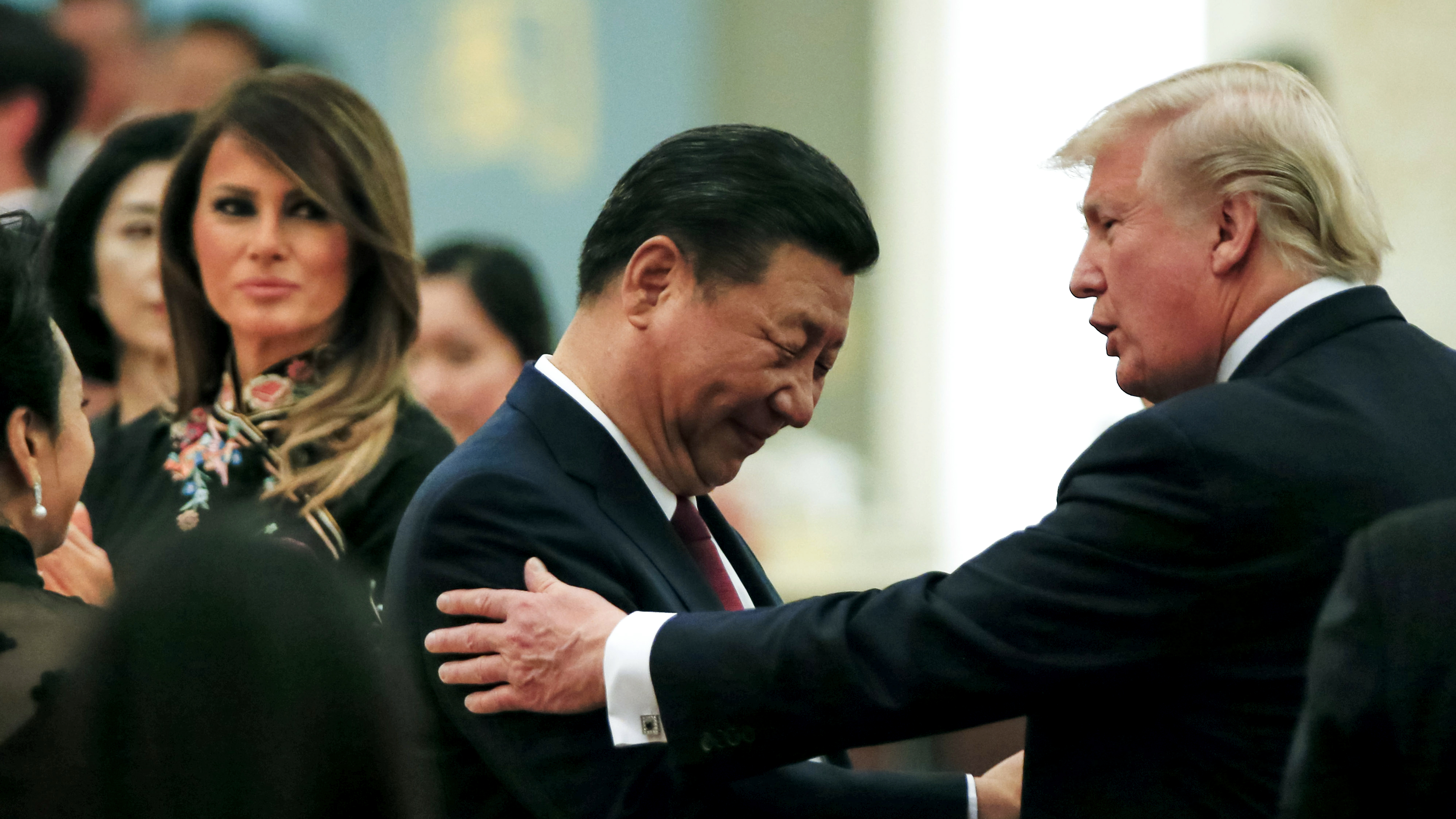Market volatility as US-China trade war takes new twist
Fiery rhetoric from China mitigated by optimistic remarks from Donald Trump on Twitter


A free daily email with the biggest news stories of the day – and the best features from TheWeek.com
You are now subscribed
Your newsletter sign-up was successful
The US-China trade war continued its chaotic trajectory on Tuesday, with fiery rhetoric from China - following $60 billion of new tariffs announced the day before - somewhat mitigated by optimistic remarks from President Trump to the press and on Twitter.
Trump tweeted in the morning: “When the time is right we will make a deal with China. My respect and friendship with President Xi is unlimited but, as I have told him many times before, this must be a great deal for the United States or it just doesn’t make any sense. [...] It will all happen, and much faster than people think!”
Wall Street had suffered its worst day since January on Monday, but on Tuesday, according to the Guardian, “hopes that the US and China haven’t irretrievably fallen out helped shares to rally - Donald Trump’s tweets can take some of the credit.”
The Week
Escape your echo chamber. Get the facts behind the news, plus analysis from multiple perspectives.

Sign up for The Week's Free Newsletters
From our morning news briefing to a weekly Good News Newsletter, get the best of The Week delivered directly to your inbox.
From our morning news briefing to a weekly Good News Newsletter, get the best of The Week delivered directly to your inbox.
At the end of last week, talks aimed at ending the conflict broke down, with the US on Friday increasing duties on $200 billion worth of Chinese imports to 25%. On Monday, China responded with tariff hikes of its own - up to 25% on $60 billion worth of imports, set to come into effect on 1 June.
In what amounts to the first explanation from either side for why the talks broke down, The Financial Times reports that yesterday the Chinese foreign ministry accused the US administration of “trying to force Beijing to suddenly increase the volume of goods it was willing to buy from the US as part of an agreement, violating terms struck in December.”
“The US 'arbitrarily raised its asking price', said a spokesman for the foreign ministry. 'The hat that... violates promises is absolutely not on the Chinese head.'”
It remains to be seen if Trump’s optimism about a resolution to the conflict will be borne out. Writing in the New York Times, Neil Irwin argues that “United States and China seem to be digging into their positions in ways that will be hard to resolve with the mutual face-saving that typically turns high-stakes negotiations into deals. [...] It is not clear what the off-ramps might be that would allow a de-escalation and prevent a major trade war that would prove costly to both nations.”
A free daily email with the biggest news stories of the day – and the best features from TheWeek.com
With a statement that could suggest a more protracted conflict, Hu Xijin, the editor of nationalist tabloid the Global Times, wrote on social network Weibo: “Washington was betting on overwhelming China with a single blow; it didn’t realise that the China-US trade war could become a war of attrition.”
But CNN says that the trade war is unsustainable, and predicts that it won’t last: “China's booming middle class is a critical growth engine for Boeing, Apple, Nike and other American brands. China is expected to keep growing in importance as a buyer. And America's insatiable appetite for cheap goods has created a Chinese factory juggernaut that employs millions of workers.”
Despite economists’ unanimous consensus that tariff wars are ineffective and result in costs shouldered almost entirely by the aggressor’s businesses and consumers, there remains unusual bipartisan support for Trump’s tough stance on China’s trade practices.
As Sky News says: “There is no doubt that, in this particular instance, Mr Trump has the moral high ground... Successive US presidents and countless American businesses have been frustrated by the way Beijing enforces regulations that bestow advantages to Chinese companies while penalising foreign ones.”
William Gritten is a London-born, New York-based strategist and writer focusing on politics and international affairs.
-
 How to Get to Heaven from Belfast: a ‘highly entertaining ride’
How to Get to Heaven from Belfast: a ‘highly entertaining ride’The Week Recommends Mystery-comedy from the creator of Derry Girls should be ‘your new binge-watch’
-
 The 8 best TV shows of the 1960s
The 8 best TV shows of the 1960sThe standout shows of this decade take viewers from outer space to the Wild West
-
 Microdramas are booming
Microdramas are boomingUnder the radar Scroll to watch a whole movie
-
 Currencies: Why Trump wants a weak dollar
Currencies: Why Trump wants a weak dollarFeature The dollar has fallen 12% since Trump took office
-
 TikTok: New owners, same risks
TikTok: New owners, same risksFeature What are Larry Ellison’s plans for TikTok US?
-
 Trump wants a weaker dollar, but economists aren’t so sure
Trump wants a weaker dollar, but economists aren’t so sureTalking Points A weaker dollar can make imports more expensive but also boost gold
-
 Leadership: A conspicuous silence from CEOs
Leadership: A conspicuous silence from CEOsFeature CEOs were more vocal during Trump’s first term
-
 The end for central bank independence?
The end for central bank independence?The Explainer Trump’s war on the US Federal Reserve comes at a moment of global weakening in central bank authority
-
 Can Trump make single-family homes affordable by banning big investors?
Can Trump make single-family homes affordable by banning big investors?Talking Points Wall Street takes the blame
-
 Phish food for thought: Ben & Jerry’s political turmoil
Phish food for thought: Ben & Jerry’s political turmoilIn the Spotlight War of words over brand activism threatens to ‘overshadow’ the big ice cream deal
-
 What a rising gold price says about the global economy
What a rising gold price says about the global economyThe Explainer Institutions, central banks and speculators drive record surge amid ‘loss of trust’ in bond markets and US dollar
